Worldcon Wrap-up
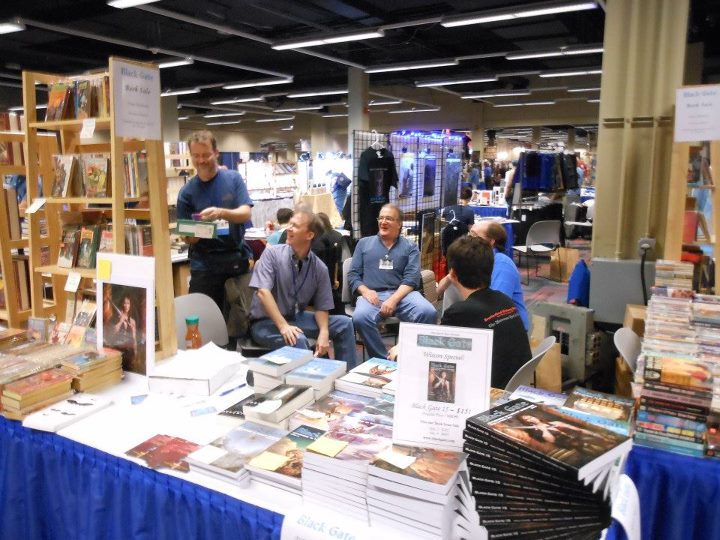
I was almost to Chicago last Thursday when I realized I’d gotten so wrapped up in the audio book of The Name of the Wind that I’d missed my turn. Fortunately, I found another way to Interstate 90 and the Hyatt Regency. And when I finally reached the dealer’s room, I was able to lodge a personal complaint with Patrick Rothfuss himself for writing so well that I got distracted.
It wasn’t long ago that I’d arrive at a convention and be surrounded by strangers or literary luminaries I was too nervous to approach. When I turn up these days, there are still a lot of strangers, but there are plenty of familiar faces as well. Before I’d even checked in, I bumped into Tom Doyle, and shortly after registering my complaint with Patrick Rothfuss, I was welcomed by Arin Komins and Rich Warren to their used books booth, Starfarer’s Dispatch.
Rich showed me a rare Harold Lamb book, then, as I noticed it contained an insert about Lamb I had no knowledge of, he handed me a CD with scans of the material. That was incredibly kind of him. I then signed a complete set of the Harold Lamb books I’d edited and personalized Arin’s copy of The Desert of Souls, which she had liked so much that I gifted her with an ARC of The Bones of the Old Ones.
Purely by chance, I kept down the aisle to the left and came instantly to the Black Gate booth where John O’Neill, (now with beard) occupied a booth surrounded by old but well-cared for paperbacks and stacks of Black Gate magazines. The booth remained a gathering spot for friends, acquaintances, and staff members throughout the convention, which is why the talented Peadar Ó Guilín and Donald Crankshaw were manning the booth with O’Neill. I’d never had the chance to meet Peadar before, but his gentle humor put me immediately at ease. We chatted for a while and then James Enge wandered up with his brother Patrick. While the Mighty Enge was settling into the room we shared, I retrieved a box of The Desert of Souls hardbacks to sell at the Black Gate booth. (We sold ’em all before the end of the convention!)

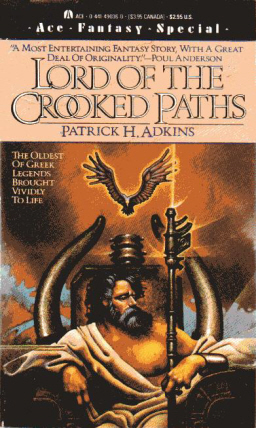
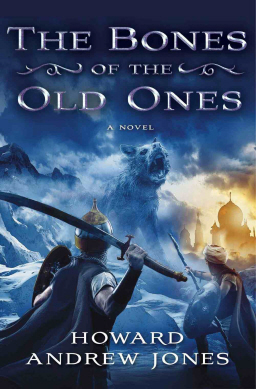

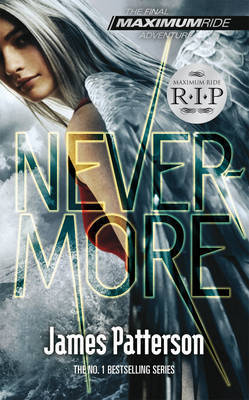
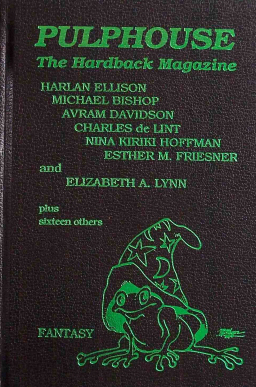


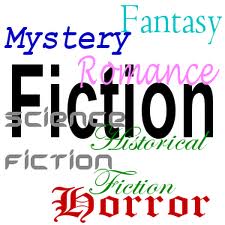 It’s a lot easier for me to be generous about other genres than it used to be. I’m trying to decide if that has something to do with me mellowing with age, or if it’s because there’s a whole lot more sword-and-sorcery available than there was ten years ago … or if it’s simply that I don’t feel shut out anymore now that I’m writing sword-and-sorcery stories for a living.
It’s a lot easier for me to be generous about other genres than it used to be. I’m trying to decide if that has something to do with me mellowing with age, or if it’s because there’s a whole lot more sword-and-sorcery available than there was ten years ago … or if it’s simply that I don’t feel shut out anymore now that I’m writing sword-and-sorcery stories for a living.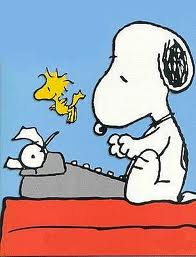 A lot of writers I know are pretty good at self-sabotage. It’s not that writing is hard, exactly, except that it is. Physical labor and exercise isn’t required, and it sure doesn’t look like you’re doing much when you’re
A lot of writers I know are pretty good at self-sabotage. It’s not that writing is hard, exactly, except that it is. Physical labor and exercise isn’t required, and it sure doesn’t look like you’re doing much when you’re